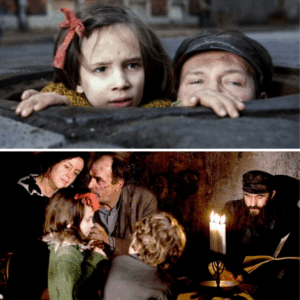
The flames crackled high into the Alabama night sky, casting a golden glow over what should have been a night of pure teenage freedom—a bonfire bash at “The Pit,” a wooded clearing off Highway 75 in Pinson where kids from Cleveland High and Locust Fork gathered to unwind after football games and midterms. Laughter echoed, country tunes thumped from truck tailgates, and friends like 18-year-old cheer captain Kimber Mills danced line dances under the stars. But at around 12:30 a.m. on Sunday, October 18, 2025, paradise turned to pandemonium when an uninvited intruder shattered the serenity with 11-12 rounds from a .38 revolver. In the crossfire: 21-year-old Silas McCay, a Locust Fork High grad and local welder, who threw himself into the fray to protect his “little sister” Kimber—and paid with ten gut-wrenching gunshot wounds.
Silas McCay wasn’t supposed to be the story that night. A sturdy 21-year-old with callused hands from his apprenticeship at a local shop, he’d known Kimber for years through their tight-knit weekend crew—bonfires, lake days, harmless hangs where she’d flash that megawatt cheerleader smile and he’d play the big-brother protector. “I look at her like a little sister to me,” Silas told reporters from his UAB Hospital bed, his voice hoarse but resolute, tubes snaking from his bandaged torso. “I tried everything I could. I wish there was more I could’ve done.” This was their first violent rumble, he insisted—no prior beefs, just kids cutting loose. But when his ex-girlfriend flagged him down amid the haze of bonfire smoke and Solo cups, whispering that a creepy stranger was harassing Kimber, Silas sprang into action.
The intruder? 27-year-old Steven Tyler Whitehead from Tuscaloosa County, a drifter with priors for DUIs and disturbances, who rolled up unannounced in the witching hour. Witnesses paint him circling the girls like a shark, pressing drinks, getting handsy. When Silas and his buddy Hunter McCulloch confronted him, words turned to fists fast. “We found him, started fighting,” Silas recounted, replaying the horror in clipped sentences. “I grabbed him, slung him over my shoulder, slammed him to the ground.” Pinned and raging, Whitehead wriggled free as Hunter yanked Silas off—then drew his piece. Bullets flew wild: 11 blasts in seconds, shredding the night. Kimber, the peacemaker who’d waded in to break it up, caught one in the leg and a fatal shot to the head. Silas? A human shield riddled ten times over—three in the leg, one in the hip, ribcage, two in the stomach, finger, pelvis, inner thigh. “Felt like firecrackers at first,” he winced. “Then the pain hit like a truck.”
Sirens screamed in at 12:24 a.m., airlifting Kimber and Silas to UAB in Birmingham, where trauma teams battled the impossible. Levi Sanders, 18, and another teen took hits too—grazes and breaks, but breathing. Whitehead bolted to Tuscaloosa, surrendering 11 hours later to three counts of attempted murder (upgraded to capital murder for Kimber by October 27). Bond? Denied initially, now a grim $500K as prosecutors eye the death penalty. Cellphone vids, shaky and soul-crushing, captured the muzzle flashes and screams, going viral as #JusticeForKimber trended nationwide.
For Silas, the heroism came at a brutal cost—but docs marvel at his grit. “Full recovery expected,” they announced midweek, eyeing discharge by Friday. From his bed, bandaged like a mummy, he mustered a thumbs-up for cameras: “Tough it out, boys—life’s too short.” Yet the emotional shrapnel lingers deeper than any slug. Kimber clung to life on machines till her “Honor Walk” at 4 p.m. that Tuesday—hundreds lining UAB halls in pink (her fave), bagpipes wailing “Amazing Grace” as her gurney rolled to organ procurement at 5 p.m. Her heart? To a 7-year-old girl in Atlanta. Kidneys, liver, corneas—five lives sparked anew. “She wanted to be a nurse,” sister Ashley beamed through tears. “This was her final gift.”
Blount County, a patchwork of farms and faith from Oneonta to Cleveland, rallied like thunder. Pink ribbons choked porches; Cleveland High’s field glowed rosy for vigils. GoFundMes exploded—$200K+ for Millses and survivors, Silas’s hitting $75K for rehab and lost wages. Football helmets stenciled #23 (Kimber’s cheer number); cheer squads retired her jersey. “Silas walked in her Honor Walk on crutches,” Ashley posted. “That’s brotherhood.” Even as cheers swelled, controversy simmered: late October arrests snared Silas and Hunter McCulloch for third-degree assault on Whitehead—witnesses claiming excessive stomps pre-shooting. Bonds at $6K each; supporters cry “heroes, not felons.” DA vows fairness: “Facts first.”
Silas, outpacing odds, embodies the unbreakable. Pre-shooting, he was the guy fixing welders by day, grilling burgers by night—dreaming of shop ownership, maybe a family. Post? A walking testament to valor’s price. “First time it went violent,” he shrugged to WBRC. “Won’t be the last lesson.” From hospital Jell-O to home fries, his road winds through PT marathons and court dates, but his eyes burn fierce: “For Kimber? Ten times over.”
In Pinson’s Pit, ashes cold but embers of rage hot, this bonfire’s blaze forged legends. Steven Tyler Whitehead rots in Jefferson County Jail, his .38’s echo a death knell. Kimber Mills, cheer eternal, beats in strangers’ chests. And Silas McCay? Shot ten times shielding souls, rising unbowed. Pray for him, y’all—full heal, clear name, endless tomorrows. In Alabama’s heartland, heroes don’t wear capes; they wear work boots and heart. This one’s still standing. Lace up, Silas. The world’s watching—and cheering.

